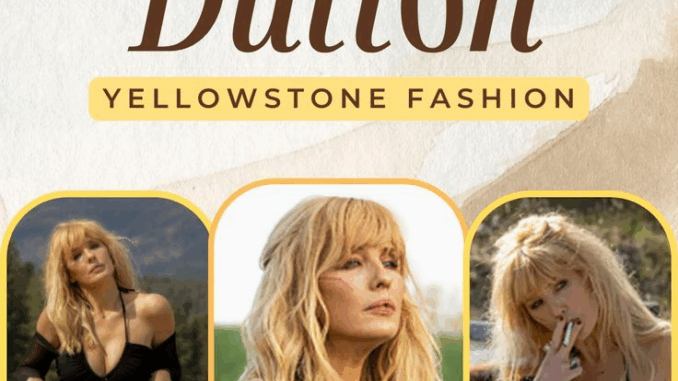
In the age of cultural awareness and accountability, claiming an identity comes with responsibility. For actress Kelsey Asbille, best known for playing Monica Dutton in Yellowstone, a claim about her Native American heritage ignited a firestorm of controversy.
In multiple interviews, Asbille described herself as part Cherokee, attributing her casting in Native roles to her heritage. But when the Cherokee Nation publicly denied any affiliation with her or her family, a much larger conversation began—about truth, representation, and the ethics of acting.
This article explores the unfolding of the scandal, the reactions from the Native community, and how it continues to shape conversations around diversity in Hollywood.
Act I: A Rising Star in a Culturally Complex Role
When Kelsey Asbille was cast as Monica Dutton, a Native American woman married into the Dutton family, the casting appeared thoughtful. Monica is central to Yellowstone’s dynamic—she represents the collision of Indigenous identity and modern ranching culture.
Asbille, who had previously starred in Wind River—another Taylor Sheridan project with Native themes—spoke frequently in interviews about how connected she felt to the character. She told outlets that playing Monica was “deeply personal” and that her Native heritage gave her a greater understanding of the role.
Hollywood, always eager to celebrate diverse casting, embraced her narrative—until it started to unravel.
Act II: The Cherokee Nation Responds
In 2017, amid the success of Wind River and her rising profile, Asbille told multiple press outlets she was “part Cherokee.”
This prompted the Cherokee Nation to issue a formal statement. In it, they stated unequivocally that Asbille was not enrolled, nor was there any record of her or her family belonging to the tribe.
“It is important that tribal citizens represent tribal characters in media,” the Nation wrote, criticizing Hollywood’s long-standing pattern of casting non-Native actors in Native roles.
The statement came as a shock, not just because of its tone, but because it directly contradicted Asbille’s public identity.
Act III: Silence and Scrutiny
As the news spread, Asbille chose not to publicly respond to the Cherokee Nation’s statement. Neither an apology, a clarification, nor a defense was offered.
This silence fueled further criticism. Activists and Indigenous actors took to social media to denounce what they saw as identity appropriation. Some went as far as to label her actions as “pretendian”—a term for people who falsely claim Indigenous heritage for personal or professional gain.
Hollywood critics also pointed out that her casting in Wind River, Yellowstone, and other Native roles likely benefited from these claims.
Act IV: The Role of Taylor Sheridan and Industry Complicity
Much of the blame also fell on Taylor Sheridan, the writer and creator behind both Wind River and Yellowstone. Sheridan has often marketed himself as a voice for rural and Native communities. Yet, by casting Asbille in prominent Indigenous roles without proper tribal verification, critics argue he failed the very communities he claims to represent.
Questions were raised:
-
Did he know she wasn’t Cherokee?
-
Was there any effort to cast actual Native actresses?
-
Why is there no formal vetting process for roles rooted in real identities?
The scandal was no longer just about Asbille—it became a reckoning for how Hollywood defines identity, and who gets to tell which stories.
Act V: Career Impact and Cultural Implications
Despite the controversy, Asbille continued to star in Yellowstone, and the scandal never reached the mainstream fervor of more explosive Hollywood feuds. But in Native circles, the fallout was significant.
Native actors like Devery Jacobs and Kawennáhere Devery Jacobs criticized the pattern of misrepresentation, calling for better industry standards and authentic casting.
Although Asbille has remained quiet, her career trajectory shows that Hollywood remains reluctant to hold stars accountable when representation is involved—especially if the person in question looks the part.
FAQs
Q: Did Kelsey Asbille lie about being Native American?
She claimed to be “part Cherokee,” but the Cherokee Nation confirmed they have no record of her or her family being members. She has not publicly addressed the contradiction.
Q: Why is this a problem?
It’s an issue of cultural appropriation and opportunities—casting non-Native actors in Native roles undermines authentic representation and can rob Native actors of important visibility.
Q: Has she played other Indigenous characters?
Yes. In addition to Yellowstone, she played a Native woman in Wind River, a film also criticized for its casting choices.
Q: Has Taylor Sheridan commented on the controversy?
No direct public comment has been made by Sheridan regarding Asbille’s background.
Q: Has this affected Asbille’s role in Yellowstone?
As of now, she continues to star in the series without public consequence.
